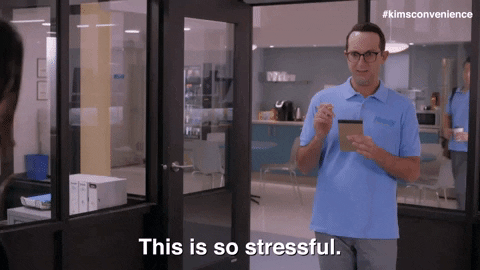- Human Skills Edition
- Posts
- Turn Small Talk into Meaningful Conversations
Turn Small Talk into Meaningful Conversations
Here’s Why Over 4 Million Professionals Read Morning Brew
Business news explained in plain English
Straight facts, zero fluff, & plenty of puns
100% free
Earlier this week, I was reminded of a conference where I saw two people approach the same speaker after his talk.
The first asked: "What's your best advice for success?"
The speaker gave a polite but generic answer.
Then the second person asked: "What's a belief you held strongly at the start of your career that you've completely changed your mind about?"
The speaker's eyes lit up.
What followed was a 15-minute conversation that ended with an invitation to lunch.
Same person.
Same time.
Different question.
Different outcome.
Here's what most people get wrong about connecting with others:
They think it's about:
Finding common ground
Making good impressions
Sharing their own stories
Being charismatic
But here's the truth: The fastest way to connect isn't through your answers. It's through your questions.
I never learn anything talking. I only learn things when I ask questions.


There are Three Levels of Questions That Transform Conversations
1. Surface Questions (Where Most People Stay)
"What do you do?"
"Where are you from?"
"How long have you been in this field?"
Polite but forgettable exchanges
2. Bridge Questions (Where Connection Begins)
"What's the most unexpected part of your work?"
"What brought you to this industry?"
"What's changed most since you started?"
Genuine engagement and shared insights
3. Depth Questions (Where Real Bonds Form)
"What's a belief about your work that most people disagree with?"
"What's something you understand now that you wish you'd known earlier?"
"What's a common assumption in your field that you think might be wrong?"
Memorable conversations and lasting connections
I know what you're thinking: "But won't deep questions feel forced or awkward?"
Here's how to make this natural:

Gif by cbs on Giphy
1. Use the Bridge Method
Start with a surface question
Listen for details that intrigue you
Ask about those specific details
Let curiosity guide you deeper
Real example: "What do you do?" → "Oh, AI research? What's something about AI that would surprise most people?" → 20-minute fascinating discussion
2. Use the Follow-Up Formula
Listen to their answer
Find the emotion or value behind it
Ask about that specifically
Repeat
Real example: "How's business?" → "Growing fast? What part of that growth excites you most?" → "Interesting, how did you discover that passion?"
3. Use the Permission Bridge (When you want to go deeper):
"Can I ask you something I'm curious about?"
"Would you mind sharing your perspective on..."
"I'd love to understand more about..."
I used these techniques at an industry event. Three deep conversations led to two partnership opportunities and one mentor relationship.
Remember: People don't remember what you tell them. They remember what they tell you.
I can hear you now.
But how do I actually make this work in my busy day?
Between meetings, deadlines, and daily fires to fight, the last thing you need is another complicated system to maintain.

Gif by grownish on Giphy
So let's get practical.
Here are three "no-excuse" approaches that actually work:
1. The Two-Minute Warm-Up
Before any meeting/call, write one bridge question
Keep it on a Post-it or phone note
Drop it in when the energy dips
Note what sparked engagement
You're prepared but not scripted, and it becomes a natural habit over time.
2. The Topic Bank System
Create a notes file called "Questions That Work"
After each good conversation, add the question that worked
Tag it with the situation (sales, networking, team meetings)
Review before similar situations
3. The Three-Question Challenge
Start with one surface question
Follow up with one bridge question
End with one depth question
Do this daily for a week
It builds a natural progression without feeling forced or awkward.
Pro Tip:
Start with one approach, not all three
Practice in low-stakes situations first
Note what works in your specific context
Build your own question bank over time
Remember: The goal isn't to interrogate—it's to investigate with genuine curiosity.
|

POLL
What's your biggest challenge with questions? |

LEVEL UP
Your Next Step
Try this today:
Pick one bridge question from above
Use it in your next conversation
Notice how the energy shifts
Write down what worked
Reply and tell me which question you chose and what happened. I read every response.
CURATED ROUNDUP
What Caught My Eye This Week
Read: The Art of Small Talk: Mastering Conversation Skills, Building Relationships, and Networking with Ease by K. Conners
Do you need a unique productivity tool that combines project management and daily planning? Upbase simplifies work organization and daily planning.

The questions you ask affect how well you connect with others.
So remember that the most memorable conversations aren't born from the stories we tell, but from the questions we ask and the space we create for others to share their truth.
Keep asking questions.
Thanks for reading. Be easy.
Girvin
(If you're stuck right now on your next career or business move, I already know you've had ideas that could help – they're just trapped in your mental archives. Let’s fix that.)
There’s a reason 400,000 professionals read this daily.
Join The AI Report, trusted by 400,000+ professionals at Google, Microsoft, and OpenAI. Get daily insights, tools, and strategies to master practical AI skills that drive results.
What did you think of today's newsletter?Your feedback helps us make the best newsletter possible. |





